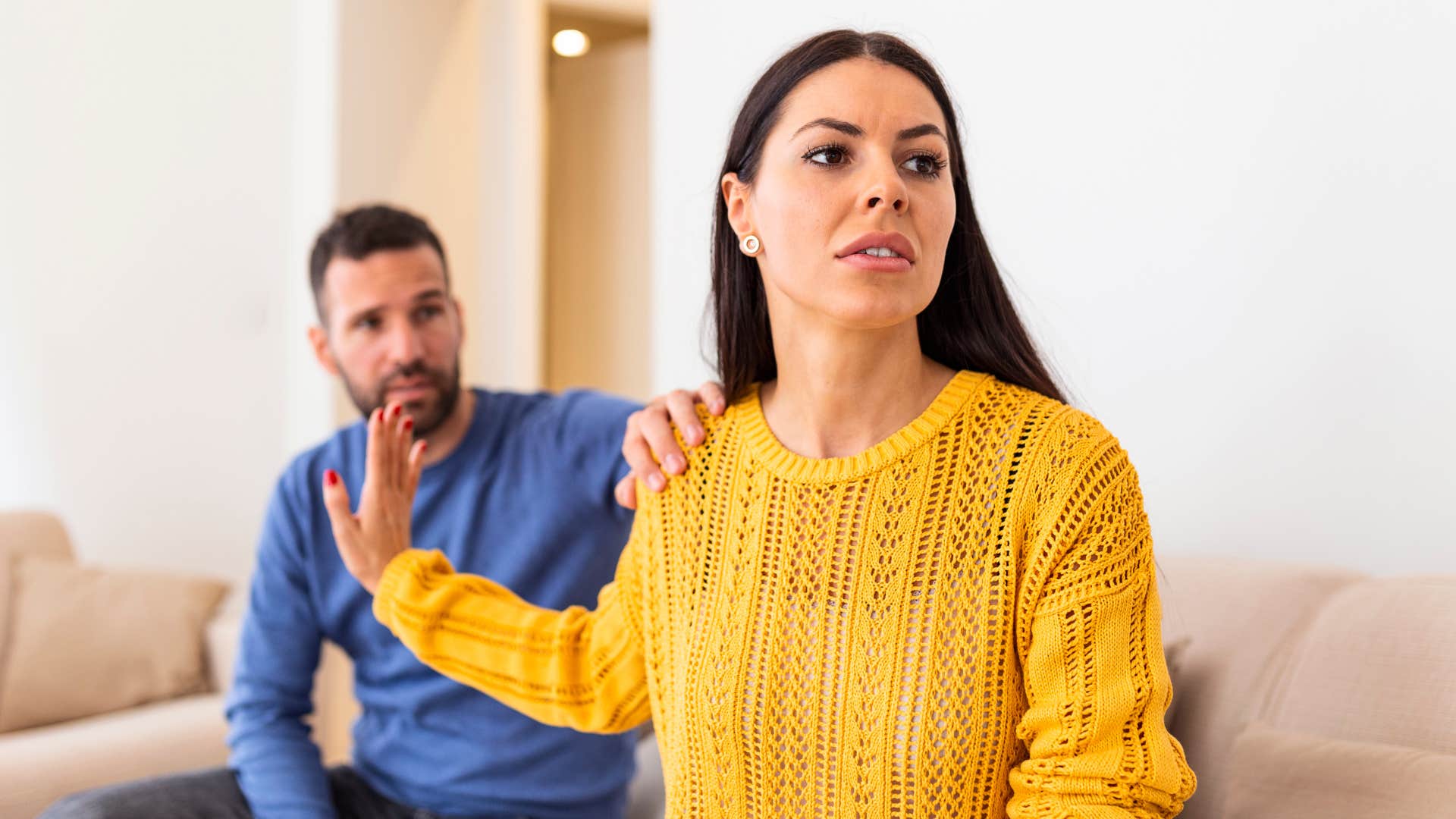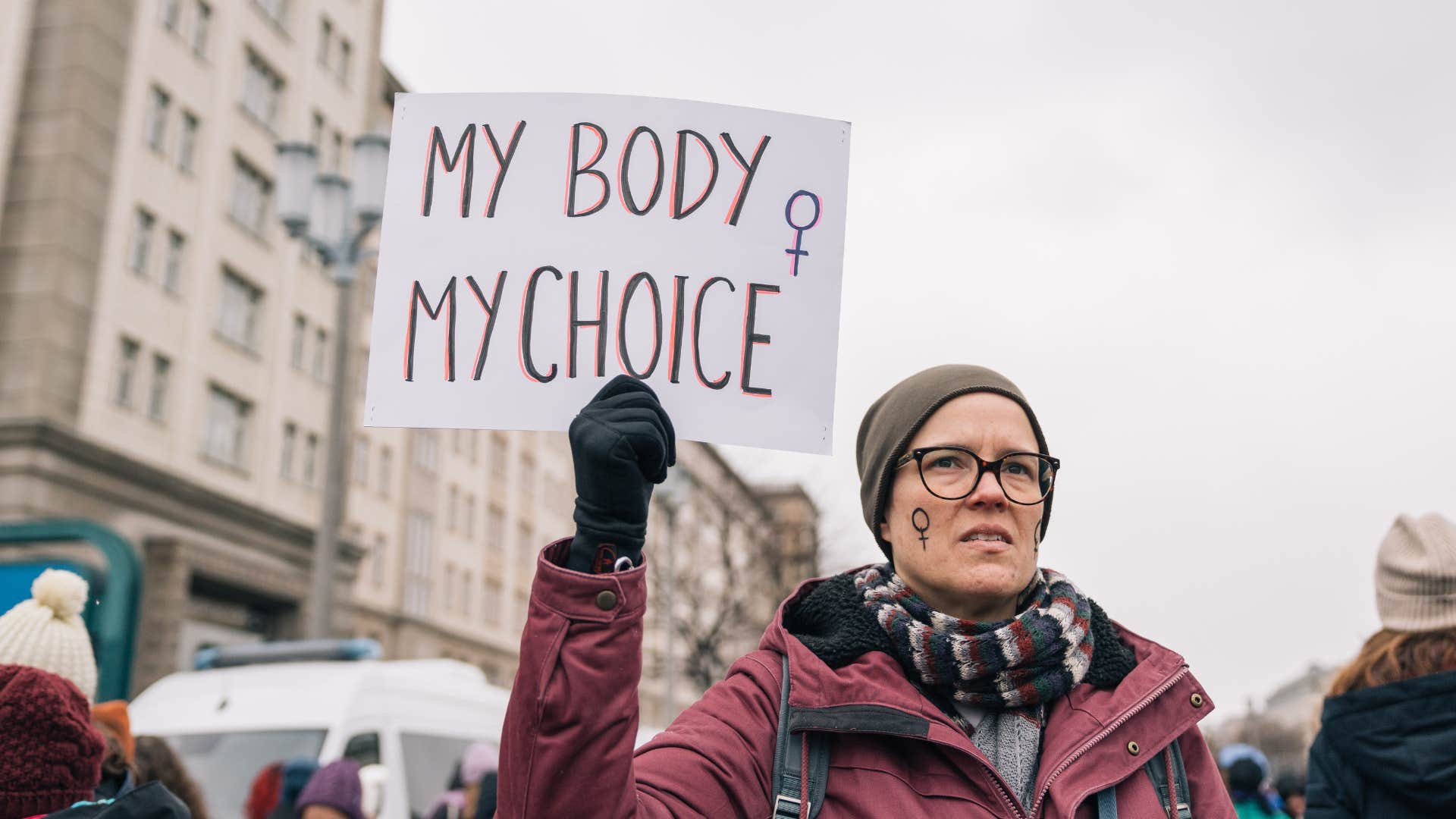Women Who Get Away With These 11 Things Are Highly Privileged, Even If They Deny It
It's not every woman, but rather those who feign ignorance around their privilege.
 Krakenimages.com | Shutterstock
Krakenimages.com | Shutterstock Society tends to constantly acknowledge male privilege, but less is known about the nuances of women living privileged lifestyles. According to a 2025 study, men who acknowledge their gendered privileges tend to be more accepting of feminism, but what about women who do the same? How many women are acknowledging their privileges and interacting with other women without judgment or criticism?
From leveraging "pretty privilege" to weaponizing stereotypes, women who get away with these things are highly privileged, even if they deny it, and tend to live an out-of-touch lifestyle that disconnects them from reality, empathy, and perspective.
Women who get away with these 11 things are highly privileged, even if they deny it
1. Flirting for favors
 Inside Creative House | Shutterstock
Inside Creative House | Shutterstock
"Pretty privilege" — a phenomenon where attractive people have more access and can get away with more misguided behavior — is a very real thing in our culture. People who conform to stereotypical standards of beauty in our society are rewarded with positive treatment, likability, access, and privileges that are often entirely unearned, according to a study from Smith College.
Of course, this experience is also often rooted in race, ethnicity, and other sociocultural categories, but from a gendered perspective, women who get away with flirting for favors or access are more privileged than they even realize.
2. Playing into stereotypes in custody battles
 Studio Romantic | Shutterstock
Studio Romantic | Shutterstock
While there are several other nuances behind the favoring of women in courtrooms and custody battles, they do tend to be historically favored when it comes to this specific avenue of the legal system. Women who get away with favored treatment, custody agreements, or even a sense of victimhood in the courtroom are highly privileged, even if they deny it.
Of course, outside of gender, things like race, income, and geographical location also tend to play a role in this legal process — favoring white, high-income women more so than their POC and low-income counterparts.
3. Acting entitled in relationships
 Photoroyalty | Shutterstock
Photoroyalty | Shutterstock
Compared to men, who are often pressured with societal expectations to be "providers" and "protectors" in relationships, some privileged women reap the benefits of their thoughtful entitlement by playing into these gendered stereotypes. They expect their male partners to provide, protect, and handle everything — in alignment with traditional male gender roles — even if that means sabotaging the health of their relationships.
Whether it's their lifestyle or false "high standards," these women often leverage their entitlement and privilege to get what they want, even if they're unwilling to admit it.
4. Being emotionally manipulative
 PeopleImages | Shutterstock
PeopleImages | Shutterstock
Manipulative tendencies and personality types are more nuanced than simply gender, but according to a study from Personality and Individual Differences, men often engage in more manipulative behaviors in their relationships than women. Of course, alongside stereotypes about emotional intelligence and self-awareness between genders, women can often get away with being emotionally manipulative toward men without huge repercussions.
Whether it's subtle gaslighting behaviors or weaponizing therapy lingo, women who get away with these things are highly privileged, even if they deny it. They have gender stereotypes about mental health and relationships on their side, protecting them from being directly called out when they put their own needs and interests consistently ahead of others.
5. Getting sympathy for certain life choices
 BearFotos | Shutterstock
BearFotos | Shutterstock
Whether it's pregnancy early in life, financial insecurity, career breaks, divorces, or even being fired from a job, women who get away with garnering sympathy for these life events tend to be highly privileged, even if they deny it.
For example, a person of color experiencing poverty is far more likely to be labeled as "deserving" of financial insecurity, while a middle-class white woman is sympathized with for the same. They went to college, or they have connections, or they're burdened with a lot of life changes, but for other less privileged people in the same situation, it's a choice or a reflection of their character, work ethic, or personality.
6. Avoiding the news
 Stokkete | Shutterstock
Stokkete | Shutterstock
While there are many reasons why someone might stray away from the news or set boundaries around consuming it that have nothing to do with privilege, women who get away with staying uninformed or ignorant for passive comfort are highly privileged, even if they deny it.
Whether it's money, a heteronormative relationship, a solid family structure, or access that ensures they'll be okay not staying informed, it's often the most privileged people who make excuses for their worldly ignorance. They aren't directly affected by things happening in the news; therefore, they don't feel required or pressured to consume it.
7. Shaming men
 AYO Production | Shutterstock
AYO Production | Shutterstock
Of course, if shame is present in conversations where a woman is simply talking about her experience or expressing her feelings, that probably has more to do with the misbehavior of others than her own personal vendettas.
However, women who get away with shaming men — online or in-person — simply for their gender or another innocent trait are highly privileged, even if they deny it. They have the protection of gendered stereotypes around men to support their personal ignorance, and even more people who are willing to believe, support, and empower them to mock, name-call, and shame men in their lives.
8. Weaponizing tears for attention
 fizkes | Shutterstock
fizkes | Shutterstock
Of course, not everyone who cries often or expresses emotion is looking for attention, but tears can be a means of oppression for certain privileged women. Specifically for white women, like a U.S. Department of Education study suggests, using tears to control a situation — whether they're aware of it or not — can actually oppress their POC counterparts.
Tears redirect attention and energy in these situations, like the study explains, urging people to shame POC women for being direct, only to later name stereotypical traits like "aggression" or "hostility" to condemn. Women who get away with these things are highly privileged, even if they don't realize it or deny it.
9. Leveraging the 'damsel in distress' narrative
 Just Life | Shutterstock
Just Life | Shutterstock
Women who get away with the "damsel in distress" narrative — manipulated and used to their advantage — are generally highly privileged, even if they deny it. They can weaponize gendered stereotypes like "women need saving" and "women are inferior to the expertise of men" to get people to do things for them, especially if they're already attractive, likable, or societally favored.
Not only does this inherently set back truly feminist ideals of equity and empowerment, but it also further isolates vulnerable women who refuse to give in to pressures of inferiority and submission.
10. Ridiculing men for vulnerability
 voronaman | Shutterstock
voronaman | Shutterstock
Many gendered stereotypes rooted in the patriarchy harm men just as often as they harm women. For example, the "protector" narrative doesn't just inherently place women in an inferior position; it also encourages men to be less emotional, intuitive, soft, and vulnerable. So, when women get away with weaponizing these stereotypes to pressure men and benefit themselves, it's clear that they're privileged enough to do so.
They don't have to worry about the consequences of feeding into toxic gender norms or stereotypes, because at the end of the day, they're protected — whether that's by a career, access, money, or sociocultural identities like race.
11. Avoiding intersectional feminist issues
 Amparo Garcia | Shutterstock
Amparo Garcia | Shutterstock
Intersectionality, the idea that all aspects of a person's identity — from race, to gender, and appearance — all play a role in affecting their experience with social norms, discrimination, treatment, and navigating life, in general, is hugely important for feminism. When a privileged white woman who refuses to acknowledge her privilege makes demands of feminism that only benefit her identity, that's not true intersectional feminism — it's entitlement.
This is generally speaking of "white women who weaponize their whiteness but play up to their vulnerability and fragility," according to historian Dr. Charlotte Riley. "It's a way in which they can have power, but it's also very patriarchal, and not empowering."
Essentially, the most privileged women can use manipulated versions and ideas of feminism to their advantage, while simultaneously avoiding the intersectional issues that matter most to their more vulnerable counterparts.
Zayda Slabbekoorn is a staff writer with a bachelor's degree in social relations & policy and gender studies who focuses on psychology, relationships, self-help, and human interest stories.

